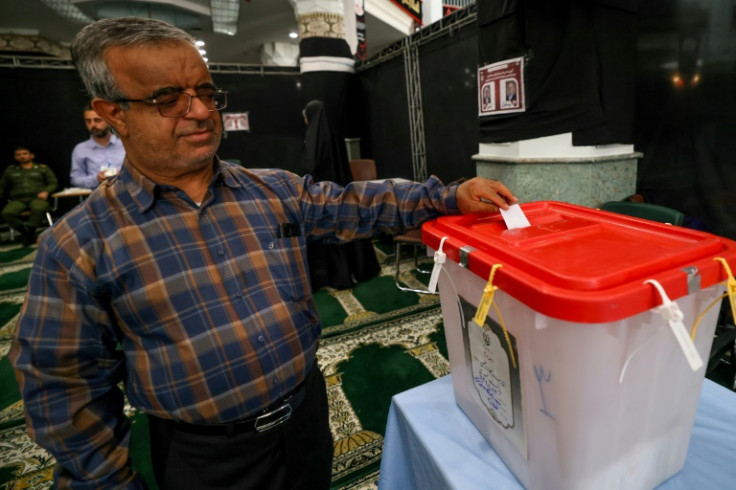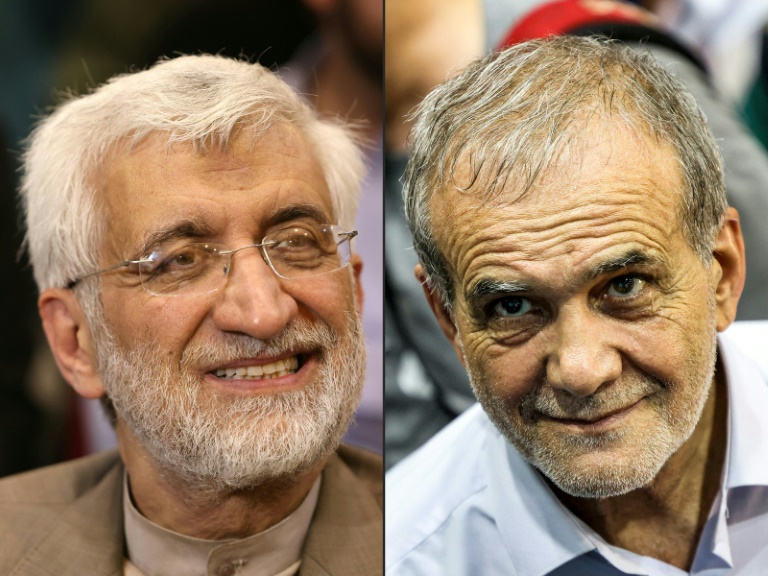Iran’s reformist candidate Masoud Pezeshkian held an early lead Saturday in a runoff presidential election against ultraconservative Saeed Jalili, according to early results released by the interior ministry.
Officials have so far counted more than 23 million votes, electoral authority spokesman Mohsen Eslami was quoted by the official IRNA news agency as saying.
Pezeshkian got more than 12.7 million votes while Jalili got 10.4 million, Eslami said, adding that counting was still underway. Voter turnout was not immediately clear.
The final result will be announced later on Saturday.
The election, called early after the death of ultraconservative president Ebrahim Raisi in a helicopter crash, followed a first round marked by a historically low turnout last week.
Iran’s supreme leader Ayatollah Ali Khamenei, who wields ultimate authority, had called for a higher turnout in the runoff, emphasising the importance of the election.
He said the first round turnout was lower than expected, but added that it was not an act “against the system”.
The ballot comes against a backdrop of heightened regional tensions over the Gaza war, a dispute with the West over Iran’s nuclear programme, and domestic discontent over the state of Iran’s sanctions-hit economy.
In last week’s first round, Pezeshkian, who was the only reformist allowed to stand, won the largest number of votes, around 42 percent, while Jalili came second with around 39 percent, according to figures from Iran’s elections authority.
Only 40 percent of Iran’s 61 million eligible voters took part in the first round — the lowest turnout in any presidential election since the Islamic Revolution of 1979.
The candidacy of Pezeshkian, a relative unknown until recently, has raised the hopes of Iran’s reformists after years of dominance by the conservative and ultraconservative camps
Iran’s main reformist coalition supported Pezeshkian, with endorsements by former presidents Mohammad Khatami and Hassan Rouhani, a moderate.
Pezeshkian, a 69-year-old heart surgeon, has called for “constructive relations” with Western countries to revive the nuclear deal in order to “get Iran out of its isolation”.
Jalili, 58, is Iran’s former nuclear negotiator who is widely recognised for his uncompromising anti-West stance.
During his campaign, he rallied a substantial base of hardline supporters and received backing from other conservative figures.
Ahead of Friday’s runoff, Pezeshkian and Jalili took part in two televised debates during which they discussed the low turnout, as well as Iran’s economic woes, international relations and internet restrictions.
Pezeshkian vowed to ease long-standing internet restrictions and to “fully” oppose police patrols enforcing the mandatory headscarf for women, a high-profile issue since the death in police custody in 2022 of Mahsa Amini.
The 22-year-old Iranian Kurd had been detained for an alleged breach of the dress code and her death sparked months of nationwide unrest.
AFP

AFP

AFP





)

